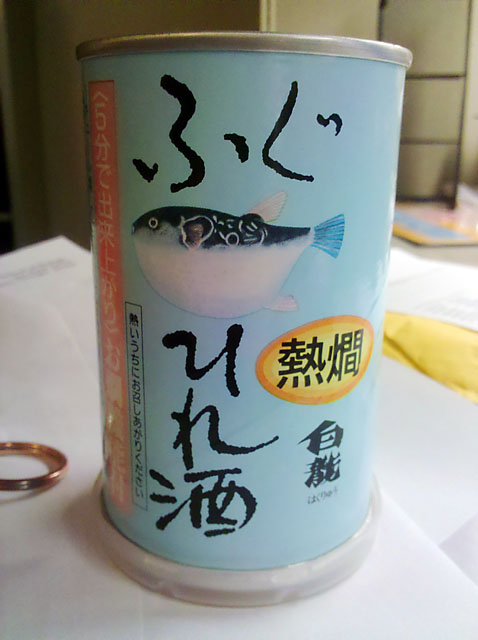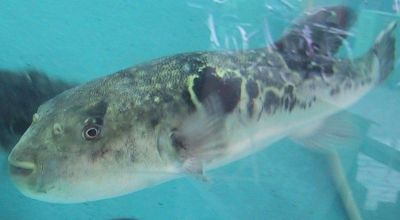Do you fugu?
 Sunday, November 21, 2010 at 3:18PM
Sunday, November 21, 2010 at 3:18PM 
Apropos of nothing, colleague Dr. Bruce Carlson recently bequeathed to me a curiosity from his personal collection: a 20-odd-year-old can of fugu, that potentially deadly Japanese delicacy made from the flesh of any one of a group of toxic tetradontiform fishes that live both in Japanese waters and elsewhere in the tropical and warm temperate world. The risk posed by eating fugu is apparently proportional to the skill of the preparer and, as such, fugu is often excedingly expensive and regarded as a luxury item. In this case, though, the fish is in a can and apparently has some sort of self-heating device in the base. The pictographic instructions suggest that you indent a button in the middle of the bottom of the can, then set it upright and pop the lid and wait until its heated through before, mmmmm, tucking in.
Let me go on the record as saying that if I am ever to eat fugu, it will not be out of a can, and nor will I trust its cooking to some pop-cap device in the bottom thereof!
 Takifugu rubripes, the most well known of the tetrodotoxic puffers
Takifugu rubripes, the most well known of the tetrodotoxic puffers
Learn more about fugu and its history at this excellent blog post.

